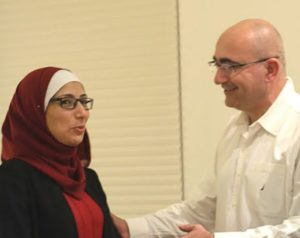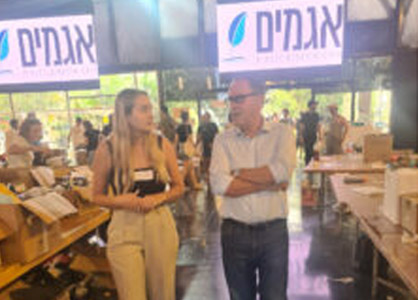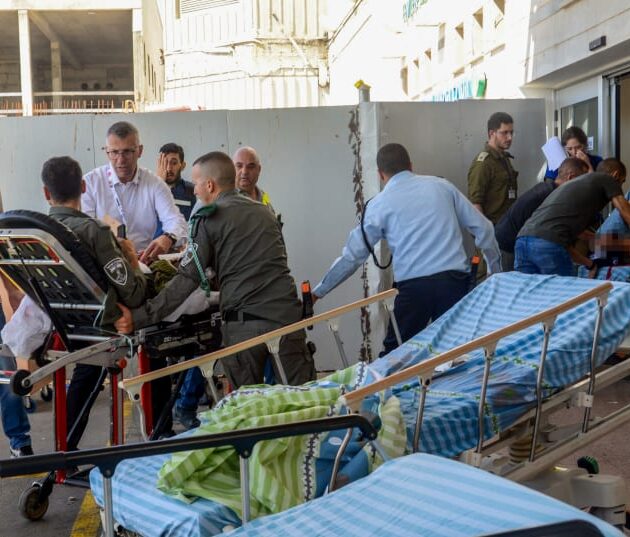
Building Bridges Through Medicine
February 8, 2018
Medical Research, Negev Development & Community Programs
The New York Jewish Week – “One of the most memorable stories from the three years I served as the IDF’s chief medical officer in the West Bank was when I invited a group of Palestinian physicians to take part in a training course related to trauma,” says Dr. Adi Leiba of BGU’s Joyce and Irving Goldman Medical School.

Dr. Adi Leiba (right) with one of his Palestinian counterparts, Dr. Khadra Hasan Ali Salami, a pediatric oncologist
The course was scheduled to begin shortly before three Israeli teens were kidnapped in Gush Etzion, leading to an IDF search operation throughout the West Bank. Despite the escalating tensions, Dr. Leiba insisted that the course take place – and to his surprise, they had doctors from Ramallah, Hebron and other Palestinian locales come participate.
It’s a story that Dr. Leiba has shared during a recent 12-day tour of the United States, and his point in telling it is to emphasize that cooperation between medical professionals transcends politics.
“This is not something you can put on hold whenever there’s a crisis,” says Prof. Leiba. “When there’s a kid with cancer, you can’t put [his treatment] on hold.”
Distrust between the two sides can complicate matters, notes Dr. Leiba, who served in his West Bank post from 2013 to 2016. However, along with the challenges come examples of cooperation, understanding and friendship.
Dr. Leiba’s primary responsibility in the West Bank was to oversee medical care for soldiers. “But when I analyzed the situation, I realized that with three million Palestinians, 350,000 settlers and [thousands of] Israeli soldiers, my main mission would have to be to bring those populations closer and build understanding,” says Dr. Leiba.
Although intuition might suggest that such an approach would meet with disapproval from the military, the division’s commanders embraced his thinking, which they believed would contribute a calmer atmosphere in the West Bank.



